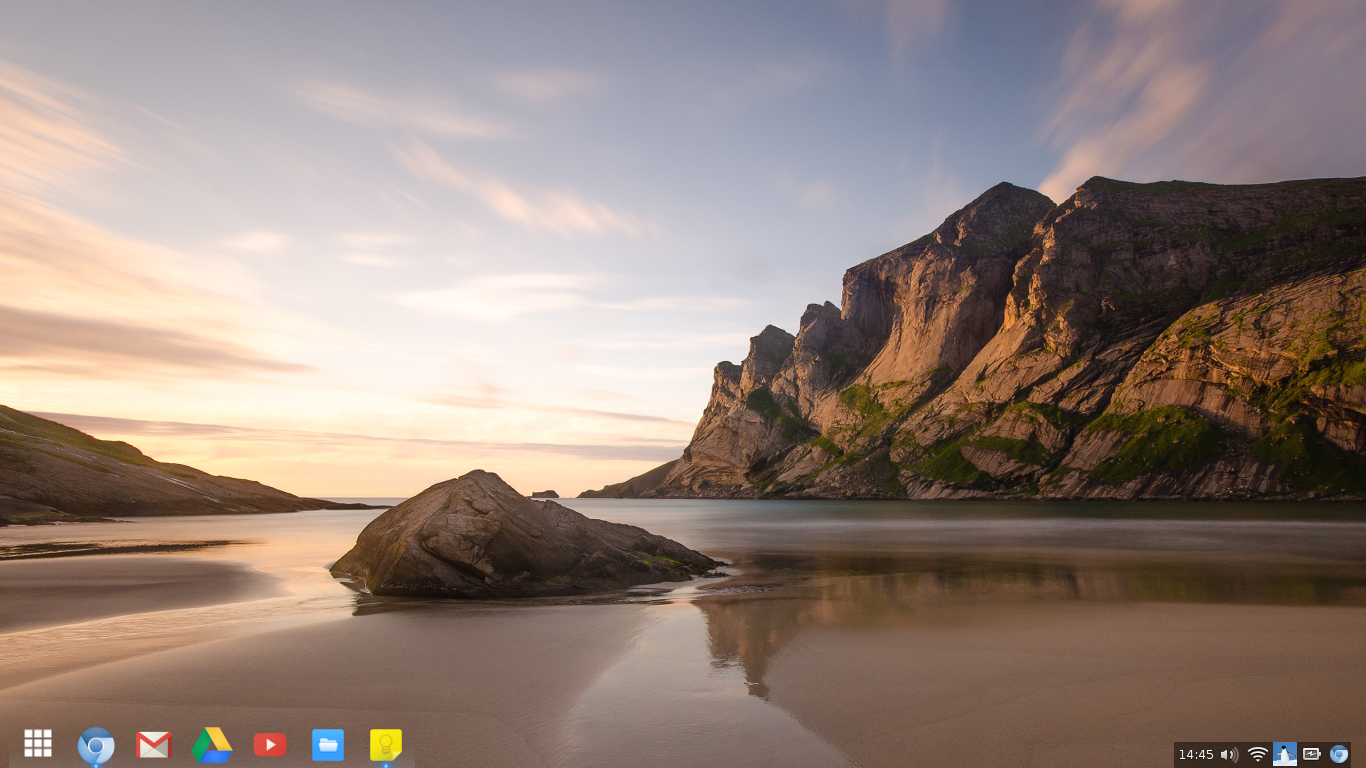Chromixium Alpha 5f
I realised a little too late that I was more than a bit hasty with my initial release of Chromixium as I hadn't sought permission for all the lovely wallpapers contained therein. I apologise to any authors/creators, and I have since pulled that release from Sourceforge and updated the ISO. Grab the new one here:
I managed to get in touch with Clemens Günthermann who took that amazing photograph that I used as the default wallpaper and that is also found within ChromeOS. I am delighted and most grateful that he has given permission for it to be included (in spite of the fact that I jumped the gun somewhat). You will now see a small watermark on the login screen and the filename in the wallpaper picker contains his name and website:
His work is truly inspirational and I suggest you all have a look at the other amazing photographs he has taken.
There are still some other very beautiful wallpapers in the new Alpha release, courtesy of the free photo group on Flickr:
I just picked out a number of my favourites, but there are plenty more to choose from.
I will also be trawling through my own photo collection for anything suitable - yes, I have managed to take one or two good shots in my lifetime (well my wife has anyway!) If there is anyone out there who has an amazing photo that could be included in a future release, please get in touch. I'll be setting up a Google+ group soon which will be a good place to share such things.
And if any of you are hankering after the original ChromeOS wallpapers, this site has them all and all appropriately referenced:
Some of the best ones are taken by famous travel photographer, Trey Ratcliff, and there are countless, breathtaking shots on his website that you can download for personal use:
Finally, if anyone wants the official ChromeOS avatars, you can find them on the web here:
I'm not sure I can use the avatars yet as I see they have been committed to ChromiumOS, which is meant to be the open source project upon which ChromeOS is based, so I will look into whether these can be added back in or not.
I have also taken this opportunity to include GParted which will help you partition your disk prior to installation and updated the brightness script which will hopefully work better (tested working on Intel graphics). The live ISO might still hang for a couple of minutes while it tries to detect the network. I'm still not sure exactly why this is happening - some remnant of the build environment? Happily it is not a problem post-install and I will share a fix for anyone who wants to create a persistent live USB in due course.
The ISO is now much reduced in size and will probably fit on a CD should anybody still use them!
Now I am going to get to work on some much needed documentation!!!

